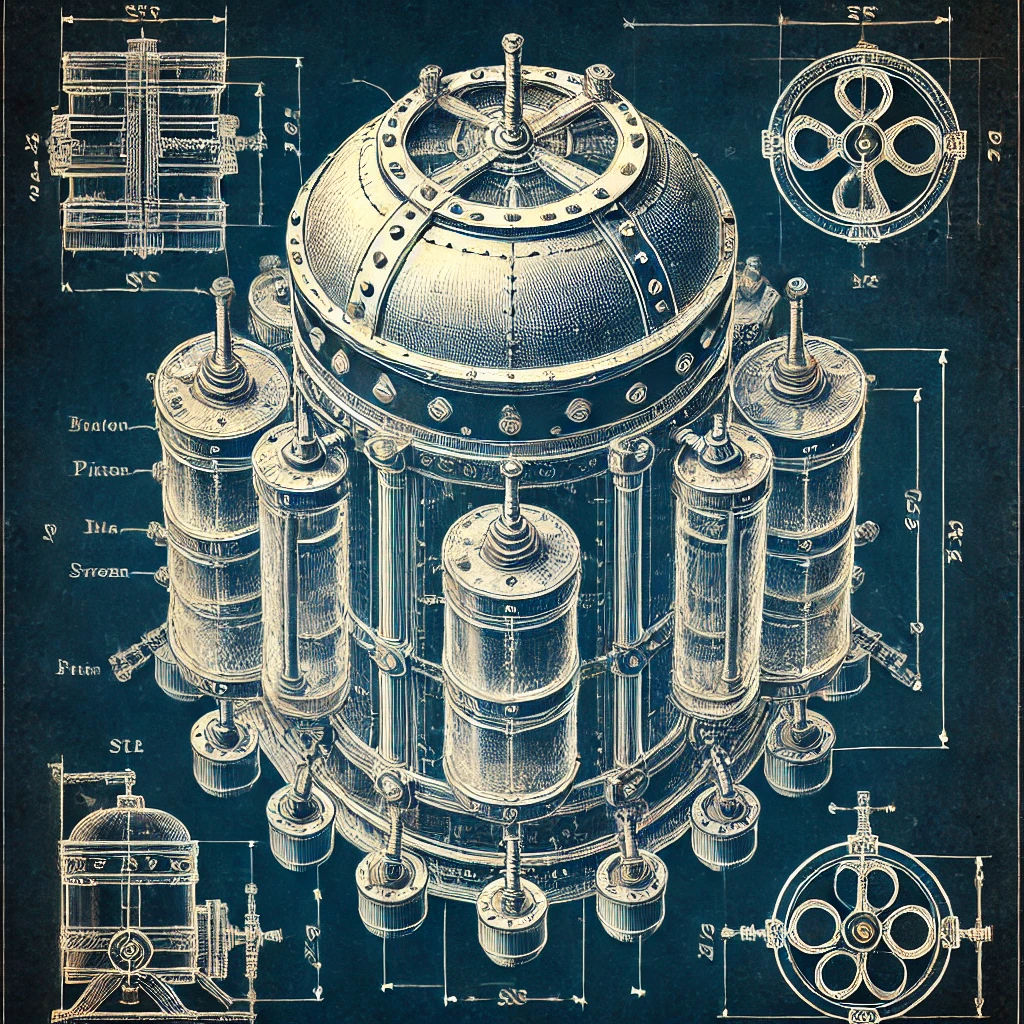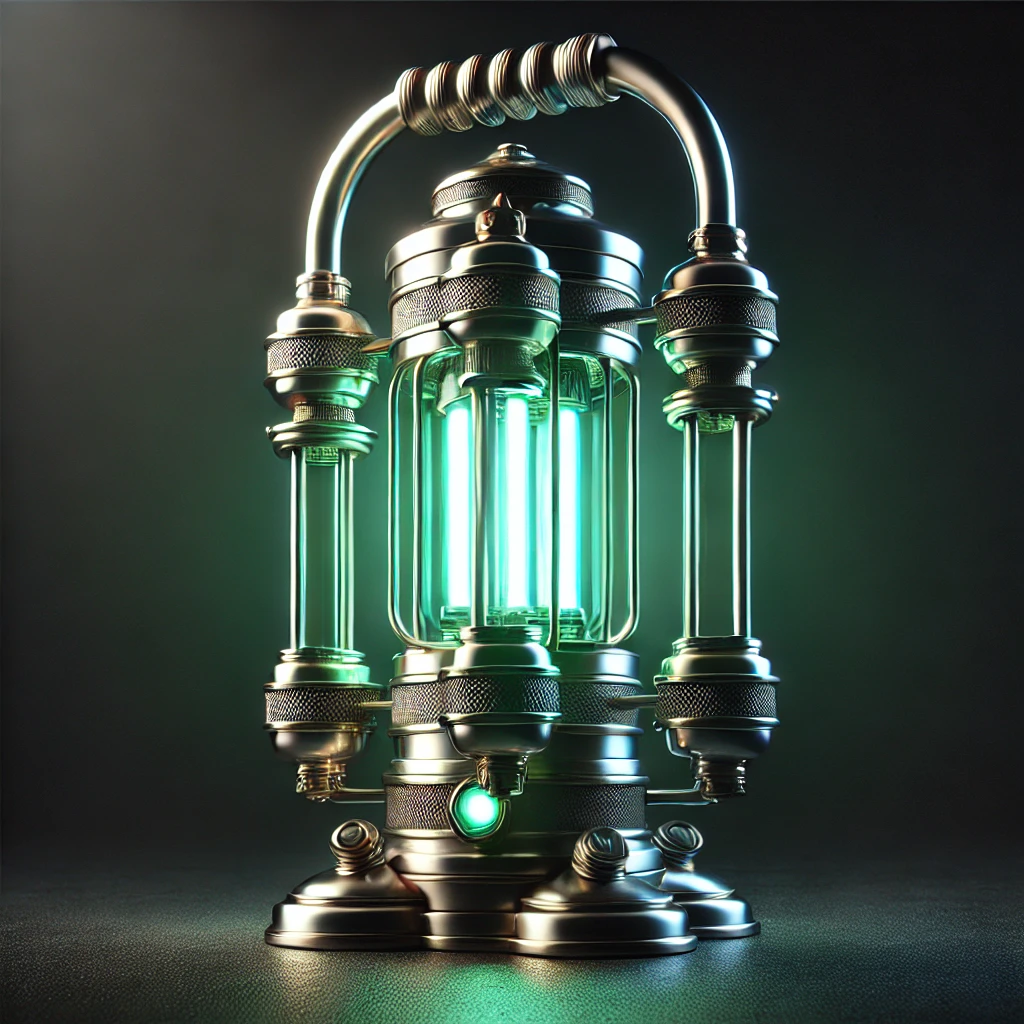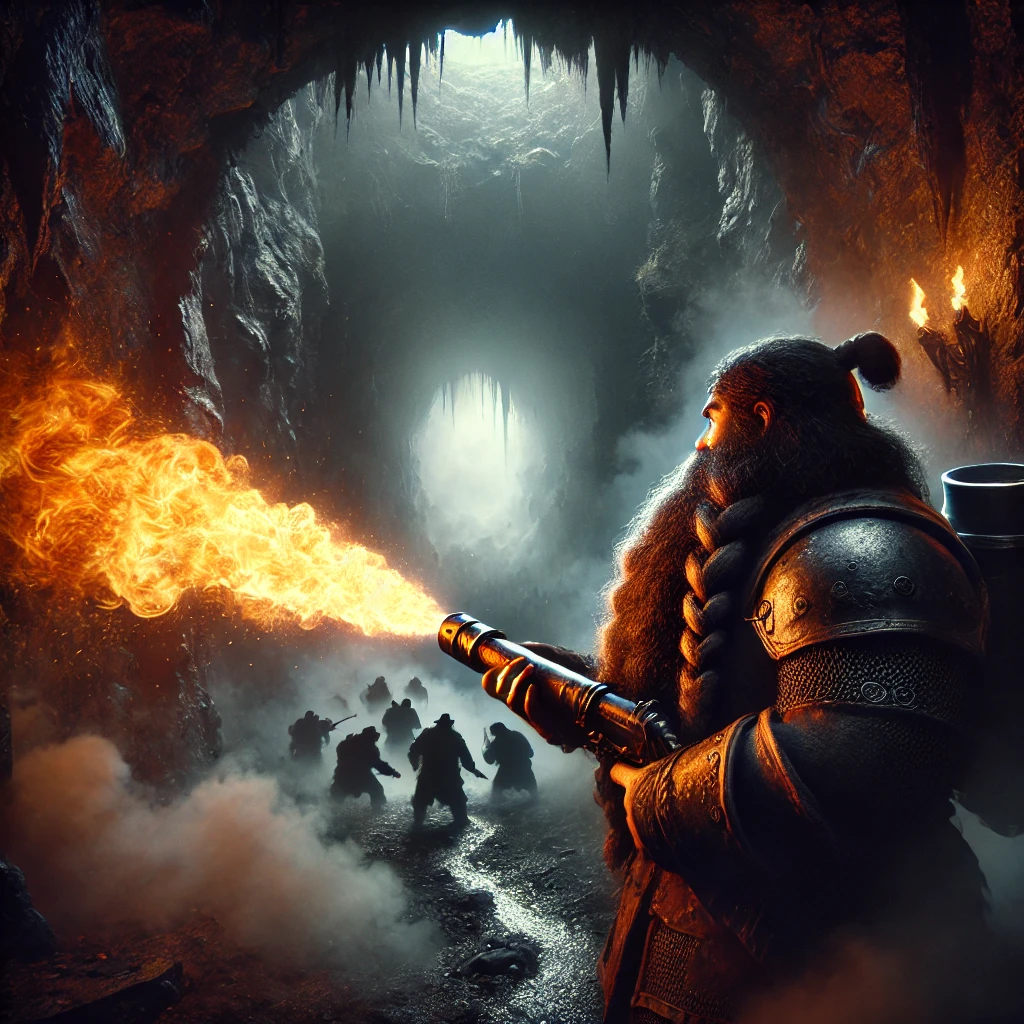Liquid Flame
Created by Adam Tingley // Wreckerdwarf
The Origin
The discovery of liquid flame is quite difficult to pinpoint. Notable alchemists have been mixing different concoctions for consumption or industry for thousands of years. It is likely that the creation of liquid flame has occurred numerous times and resulted in nothing more than disappointed notes in alchemist ledgers. Harnessing the potential of such a violent alchemical reaction proved to be the turning point for the technology and its use within industry and society.The Alchemy
Fire is spontaneously created upon the mixing of two liquids; One highly concentrated acid, one of condensed and oxidised fuel. If combining these in an uncontrolled environment, the result is a short lived, exothermic fire that combusts all available liquid fuel before sputtering out. However, when combining in a pressurised environment and then allowing the combustion to vent out of a pinhole, the flame produced escapes from this pinhole in a controlled and steady manner. Years of tinkering have improved the dwarves' ability to harness this technology to great effect. The advantage to this form of fire was that it only produces small amounts of water as a byproduct which can easily be siphoned away.Complementary Technologies & Use Cases
Copper was found to be ideal for transporting the liquids over large distances. As a material, copper is more pliable than other metals while also being resistant to acids. The pressurisation of pipework mainly came from gravitational forces. Dwarven cities were already built vertically with gravity in mind for the distribution of water throughout the homes of its citizens. Specially designed vats were created in order to stabilise the pressure appropriately. These vats are very large with additional cylinders jutting out around the sides that housed sealed pistons. By manipulating external handles, technicians could control the force the pistons exerted on the system and control the pressure throughout.Additionally, the creation of handheld, refillable lanterns was made possible. The same piston-based system was built into the handle to control the pressure levels of the device. The container itself was created using copper as well as emerald glass. When the combination valve is opened, it allows the two stored liquids to combine and produce a flame in a central opening. Having controllable fire available changed some of the ways that foodstuffs could be cooked. The prolonged flame could be used to assist in the drying and curing of meats and mushrooms. As well as being able to cook food steadily over the span of a few hours to create tasty stews, soups and hotpots.
The Impact on Society
Within a short span of time, the dwarves were able to switch almost completely away from carbon producing open flames to water producing contained flame. This allowed the dwarves to dig far deeper as they no longer needed to construct elaborate ventilation and chimney systems alongside traditional tunnel systems. Living spaces no longer needed to have high vaulted ceilings and in turn, the newer constructions could house far more floors thus increasing population density. Cleaning of soot from blackened ceilings and ventilation systems was also no longer needed.Military Uses
Although the technology has most of its uses within the household and industry, the military have attempted to apply the flame in a number of ways. The most successful device is known as a flame belcher. The fire in its default state is controlled at the business end of the device and an expandable metal iris could be controlled by a trigger. When opened, the controlled flame reverted back to its highly combustible nature and would ‘belch’ violently towards the target, spraying them with fire, oxidising agent and concentrated acid all at once. Although highly effective at clearing tunnel systems and tearing through armour, the use of the device has to be kept minimal. The damage caused by the liquids on open stone has unfortunately caused tunnel collapses and cave-ins. It is recommended that the wielder of such a weapon is also an artisanal stonesmith able to assess what level damage is likely from a blast to best avoid friendly fire losses.This article was created for my first World Ember - I hope you enjoy my writings and I'm looking forward to hearing your feedback!









The introduction of Liquid Flame is a fantastic addition to dwarven society, blending alchemy, engineering, and everyday practicality. The military use of the flame belcher adds a dramatic, high-stakes dimension to the technology while still acknowledging its risks and limitations. This is a beautifully crafted concept that feels deeply integrated into its world!
I'm hoping it will make for an interesting starting point to let the world grow from! I do plan on expanding this article quite a bit but who knows when I'll get round to that haha